The Deserter
The Deserter
Book Excerpt
by the wayside, of the mountain passes heaped with dead, of the doctors and nurses wading waist-high in snowdrifts and for food killing the ponies. Some of our visitors wanted to get their names in the American papers so that the folks at home would know they were still alive, others wanted us to keep their names out of the papers, hoping the police would think them dead; another, convinced it was of pressing news value, desired us to advertise the fact that he had invented a poisonous gas for use in the trenches. With difficulty we prevented him from casting it adrift in our room. Or, he had for sale a second-hand motorcycle, or he would accept a position as barkeeper, or for five francs would sell a state secret that, once made public, in a month would end the war. It seemed cheap at the price.
Each of us had his "scouts" to bring him the bazaar rumor, the Turkish bath rumor, the café rumor. Some of our scouts journeyed as far afield as Monastir and Doiran, returning to drip snow on the floor
Editor's choice
(view all)Popular books in War, Fiction and Literature, Short Story
Readers reviews
5.0
LoginSign up
This story was about war & the difficulties Richard Harding Davis had truly gone through during the war. He believed that wars were violent and justifiable. Richard was a journalist. He tracked down combats to get their news. Thus, it was hard for Richard to collect the news..
- Upvote (0)
- Downvote (0)
From 1890 until his death in 1916, Richard Harding Davis was considered the greatest American war correspondent. In World War I he travelled to Europe in 1914 and covered the conquesst of Belgium and the western front briefly, before leaving because "there is not place for a war correspondent in this war."
In 1915, he returned to Europe to cover the Serbian front from Salonika. On his arrival there, he shared a suite with John T. McCutcheon, the editorial cartoonist for the Chicago Tribune, and William G. Shepherd, an A.P. correspondent noted for his ability to find the humanizing details in massive tragedies.
I mention all of this because at least the first part of this story is certainly factual. The second part, the heart of the story, may not be factual in the sense of being based on a single event, but was certainly based upon facts as they were reported to Davis by the soldiers and the ambulance drivers.
The story uses an anonymous narrator who shares a room with a great war correspondent, called "uncle Fred" by his colleagues, an editorial cartoonist, called John, and a "human interest" reporter for a wire service, called "The Kid". The first part of the story deals with the conditions under which the reporters work and the difficulties of gathering facts and getting the facts past the censors.
The second part of the story is about an American who volunteered for the British hospital corps and who now wants to go home, not because of the danger and the pain, which are real enough, but because of the sheer discomfort, caused in part by the incompetence of the military.
It is a new departure for Davis who, as a correspondent and as a writer of fiction focused on the dramatic and heroic aspsects of war, sometimes in disregard of the facts.
Both Davis's writing and World War I are largely forgotten today. This is too bad, particlarly in the case of "The Deserter" in which Davis gives probably his most realistic portrait of war, and seems to question the part that the war correspondents played in endowing it with a spurious romanticism. Those two elements make if worth reading in the very different but equally war-torn world of the twenty-first century.
In 1915, he returned to Europe to cover the Serbian front from Salonika. On his arrival there, he shared a suite with John T. McCutcheon, the editorial cartoonist for the Chicago Tribune, and William G. Shepherd, an A.P. correspondent noted for his ability to find the humanizing details in massive tragedies.
I mention all of this because at least the first part of this story is certainly factual. The second part, the heart of the story, may not be factual in the sense of being based on a single event, but was certainly based upon facts as they were reported to Davis by the soldiers and the ambulance drivers.
The story uses an anonymous narrator who shares a room with a great war correspondent, called "uncle Fred" by his colleagues, an editorial cartoonist, called John, and a "human interest" reporter for a wire service, called "The Kid". The first part of the story deals with the conditions under which the reporters work and the difficulties of gathering facts and getting the facts past the censors.
The second part of the story is about an American who volunteered for the British hospital corps and who now wants to go home, not because of the danger and the pain, which are real enough, but because of the sheer discomfort, caused in part by the incompetence of the military.
It is a new departure for Davis who, as a correspondent and as a writer of fiction focused on the dramatic and heroic aspsects of war, sometimes in disregard of the facts.
Both Davis's writing and World War I are largely forgotten today. This is too bad, particlarly in the case of "The Deserter" in which Davis gives probably his most realistic portrait of war, and seems to question the part that the war correspondents played in endowing it with a spurious romanticism. Those two elements make if worth reading in the very different but equally war-torn world of the twenty-first century.
10/31/2006
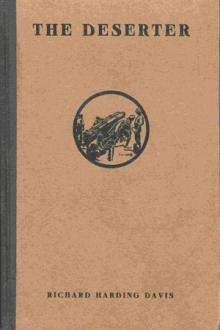
 Free Download
Free Download






















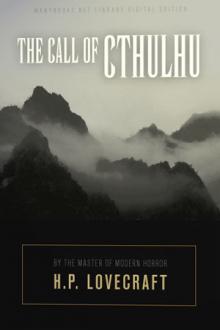




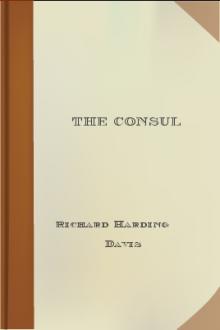
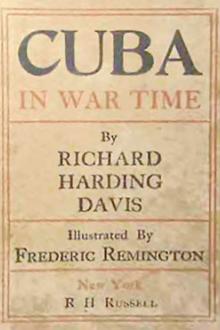




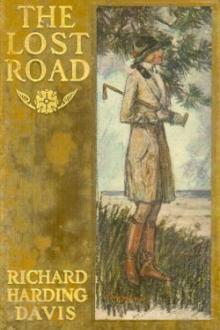

-itok=vcKIB5v1.jpg)